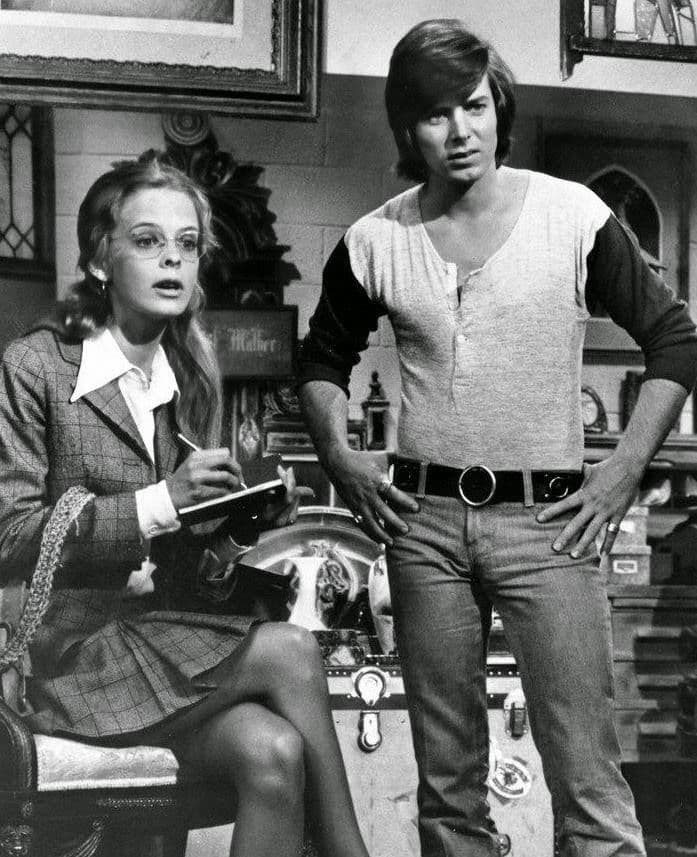
A Melancholy Reflection on Love’s Fading Light
Ah, Bobby Sherman. Just hearing that name, doesn’t it conjure up images of a simpler time? The late 60s, early 70s—a period of transition, of youthful exuberance tempered by a growing awareness of life’s complexities. For many of us who came of age during that era, Bobby Sherman was more than just a teen idol; he was a soundtrack to our burgeoning emotions, a voice that often articulated what we ourselves were still struggling to understand. And among his considerable catalog of hits, there’s one song that, even after all these years, continues to resonate with a quiet, persistent ache: “I Think I’m Gonna Rain.”
Released in 1972, this poignant ballad found its footing on the charts, reaching a respectable No. 7 on the Billboard Hot 100. Coming off the heels of his earlier, more effervescent successes like “Little Woman” and “Easy Come, Easy Go,” “I Think I’m Gonna Rain” presented a noticeably more mature and introspective side of Sherman. It wasn’t the kind of bubbly, innocent pop that defined some of his earlier work; instead, it was a gentle, almost melancholic whisper, a stark contrast that perhaps caught some listeners by surprise, yet ultimately endeared itself to many more. It’s a testament to his evolving artistry that he could pivot from upbeat declarations of love to such a tender, vulnerable expression of heartbreak.
The story behind “I Think I’m Gonna Rain” is, in many ways, the story of countless relationships that drift apart, not with a bang, but with a slow, almost imperceptible sigh. It captures that difficult, liminal space where the certainty of love begins to give way to the creeping doubt of its imminent demise. While Bobby Sherman didn’t pen the lyrics himself (the song was written by Barry De Vorzon and Al Capps), his delivery imbues every word with a profound sense of personal experience. It’s as if he’s not just singing a song, but reliving a moment, a memory of a love that’s slipping through his fingers. The arrangement, sparse and delicate, allows Sherman‘s vocals to truly shine, carrying the emotional weight of the narrative without any unnecessary embellishment. The subtle strings and gentle piano chords create an almost dreamlike atmosphere, perfectly complementing the reflective tone of the lyrics.
The meaning of “I Think I’m Gonna Rain” is deeply rooted in the universal experience of pre-emptive grief—that heavy feeling that settles upon you when you realize a cherished connection is about to end. It’s not about the initial shock of a breakup, but rather the quiet, internal processing of its inevitability. The “rain” isn’t just literal tears, but a metaphor for the impending storm of sadness, the emotional deluge that the singer knows is just around the corner. Phrases like “I think I’m gonna rain, because you’re gonna leave me,” speak volumes about the resignation and a touch of helplessness that often accompany such realizations. It’s a song about acceptance, not of the outcome itself, but of the emotions that come with it. It speaks to the quiet ache of a heart bracing itself for impact, knowing that the sunshine of a shared past is about to be obscured by clouds of sorrow.
Listening to it now, after all these years, “I Think I’m Gonna Rain” still has the power to transport you back to those moments in your own life when you felt that same sense of impending loss. It’s a reminder that even in the seemingly carefree days of our youth, there were profound emotional currents flowing beneath the surface. For those of us who grew up with Bobby Sherman as a fixture on our radios, this song stands as a quiet masterpiece, a testament to his ability to convey vulnerability and a resonant maturity beyond his teen idol image. It’s a song that invites you to sit, reflect, and perhaps, allow a few of those nostalgic tears to fall.